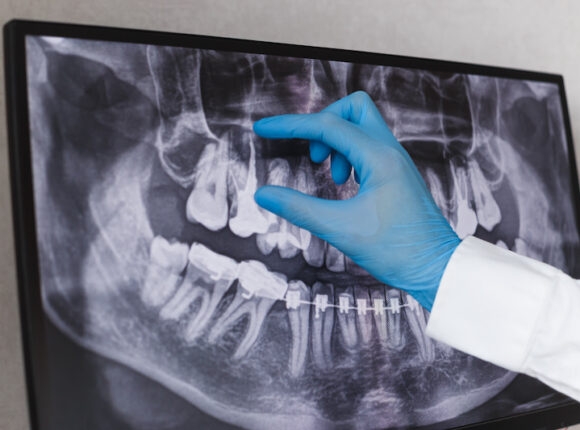[cmsmasters_row data_shortcode_id=”cefhidwcsp” data_padding_bottom=”15″ data_color=”default” data_bot_style=”default” data_top_style=”default” data_width=”boxed”][cmsmasters_column data_width=”1/1″ data_shortcode_id=”5161e5ffbd”][cmsmasters_text shortcode_id=”0y3ro0oaln”]
If you’re unsure of how long does wisdom teeth removal take. Despite the terrifying tales you may have heard, getting your wisdom teeth out is actually a fairly easy surgery. It’s a routine treatment that typically takes an hour or two to perform. It’s important to understand how long wisdom tooth removal takes and what to expect during the procedure, regardless of whether you have an impacted wisdom tooth or only need to have a few extracted. To make an informed choice regarding your dental health, it’s crucial to comprehend the technique and any potential hazards involved with wisdom tooth removal.
The final teeth that erupt in an adult human mouth are the wisdom teeth, sometimes known as the third molars. They typically start to show up in people when they are in their late teens or early twenties. Many people experience issues with their wisdom teeth because they don’t have enough room in their mouths to develop normally, which causes crowding and tooth misalignment. Knowing the impact of wisdom teeth and when to get them removed is crucial for avoiding more dental issues.

[/cmsmasters_text][/cmsmasters_column][/cmsmasters_row][cmsmasters_row data_shortcode_id=”767hnkk1zp” data_padding_bottom=”0″ data_padding_top=”0″ data_color=”default” data_bot_style=”default” data_top_style=”default” data_width=”boxed”][cmsmasters_column data_width=”1/1″ data_shortcode_id=”7030937105″ data_animation_delay=”0″ data_border_style=”default” data_bg_size=”cover” data_bg_attachment=”scroll” data_bg_repeat=”no-repeat” data_bg_position=”top center”][cmsmasters_heading shortcode_id=”ytn5cr4kfq” type=”h3″ font_weight=”default” font_style=”default” text_align=”left” margin_top=”40″ margin_bottom=”25″ animation_delay=”0″]Preparation Time Prior To The Procedure [/cmsmasters_heading][cmsmasters_text shortcode_id=”77nrdp0efp” animation_delay=”0″]
Before having your wisdom teeth removed, it’s important to take the time to prepare properly. First and foremost, if you are on any medications, you should make sure to inform your doctor before the procedure. You should discuss any allergies you may have and any other medical conditions that may be relevant.
In an effort to ensure the procedure runs smoothly and reduces the risk of any potential complications, your doctor may suggest that you stop taking certain medications. For example, if you are taking an aspirin-based drug such as ibuprofen or naproxen, you should stop taking these medications before the procedure. If you are taking any anti-inflammatory medications, such as prednisone, your doctor may recommend that you stop taking them for a few days prior to the procedure.
It is important to avoid taking any aspirin or anti-inflammatory drugs like ibuprofen prior to the surgery, as they can increase the risk of bleeding during the procedure. You should also prepare for the procedure by abstaining from smoking, eating, and drinking at least 8 hours prior to the operation.
[/cmsmasters_text][cmsmasters_text shortcode_id=”zfv2m3xhe” animation_delay=”0″]
In more rare cases, the healing process may take longer. These might be an infection or damage to your nerves in your mouth. Any of these cases will increase the length of recovery time.
[/cmsmasters_text][cmsmasters_heading shortcode_id=”ok66glnp99″ type=”h2″ font_weight=”default” font_style=”default” text_align=”left” margin_top=”0″ margin_bottom=”20″ animation_delay=”0″]How long does wisdom teeth removal take?[/cmsmasters_heading][cmsmasters_text shortcode_id=”p1zvhm1sgr” animation_delay=”0″]
The length of the surgery will depend on several factors, such as the number of wisdom teeth being removed, the complexity of the case, and the technique used by the surgeon. Generally speaking, the procedure can take anywhere from thirty minutes to two hours. The most common approach is to remove one or two wisdom teeth at a time, and this usually takes about one hour. If you have multiple wisdom teeth that need to be removed, the procedure may take longer. The surgeon will need to make sure that each tooth is safely extracted and that the area is properly cleaned and sutured before the procedure can be completed. The average removal takes between 30 minutes and two hours, though this can vary depending on the individual.
[/cmsmasters_text][cmsmasters_heading shortcode_id=”4vgvspn9d” type=”h3″ font_weight=”default” font_style=”default” text_align=”left” margin_top=”0″ margin_bottom=”20″ animation_delay=”0″]Post-Operative Care [/cmsmasters_heading][cmsmasters_text shortcode_id=”tl054ndfdp” animation_delay=”0″]
Post-operative care is an important part of the process. After the procedure, it is important to eat soft foods and avoid any strenuous activities. Patients should also use a cold compress to help reduce swelling and apply an ice pack to the outside of their cheeks. If a patient experiences any pain or discomfort, they should take over-the-counter pain medications as directed by their doctor. After the surgery, you may experience some pain and discomfort. Your dentist will likely provide you with pain medication to take as needed for a few days after the procedure. Be sure to take the medication as prescribed. In addition to prescription pain medications, you can also use an over-the-counter anti-inflammatory (such as ibuprofen) to manage the pain and swelling.
[/cmsmasters_text][cmsmasters_heading shortcode_id=”4nyp8gpap” type=”h3″ font_weight=”default” font_style=”default” text_align=”left” margin_top=”0″ margin_bottom=”20″ animation_delay=”0″]Recovery Time [/cmsmasters_heading][cmsmasters_text shortcode_id=”wy0sapv7ao” animation_delay=”0″]
The recovery period for the removal of wisdom teeth varies on a case-to-case basis, but generally, it takes anywhere from a few days to a few weeks to feel back to normal. The recovery time also depends on the extent of the surgery and if there are any complications. Generally, if you have all four of your wisdom teeth removed, you may experience more swelling and pain than if only one or two of them were removed. In addition, if the wisdom teeth were impacted, the recovery time could be longer due to the complexity of the surgery. It is important to follow your dentist or oral surgeon’s instructions for post-operative care.
[/cmsmasters_text][cmsmasters_heading shortcode_id=”uue5qqs4as” type=”h3″ font_weight=”default” font_style=”default” text_align=”left” margin_top=”0″ margin_bottom=”20″ animation_delay=”0″]Complication Risks Associated with The Procedure[/cmsmasters_heading][cmsmasters_text shortcode_id=”7kbke0pps3″ animation_delay=”0″]
Wisdom teeth removal is a common dental procedure for many people. While the procedure may be routine, there are risks associated with it that you should be aware of. The most common risks associated with wisdom teeth removal include infection, bleeding, and nerve damage. Infection is the most common risk associated with wisdom teeth removal. This can occur if bacteria from your mouth enter the wounds created by removing the teeth. Symptoms of infection include swelling, redness, and pain in the extraction site. To help prevent infection, your dentist may prescribe an antibiotic before and after the procedure.
[/cmsmasters_text][/cmsmasters_column][/cmsmasters_row]
